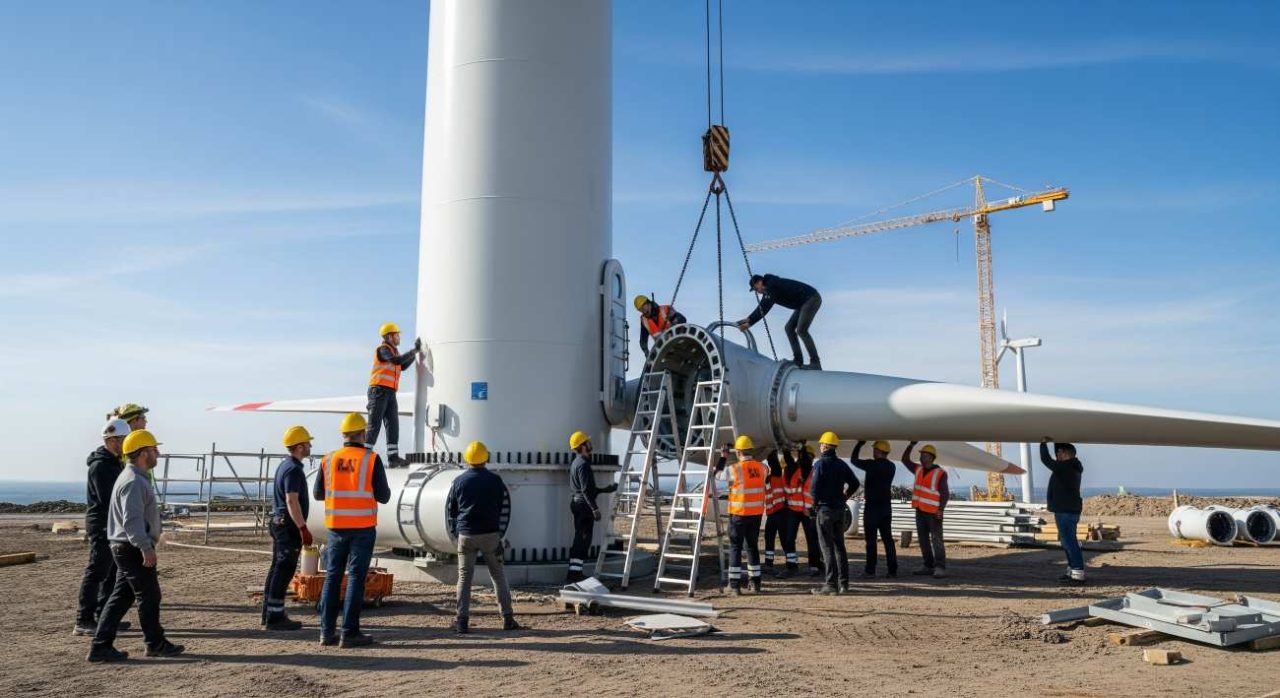The green transition is driving demand for energy sector jobs in Italy, but a shortage of specialized technicians and weak training programs pose serious challenges

Over 250,000 new energy sector jobs expected by 2030
As the energy transition accelerates, driven by increasingly ambitious EU targets and a central role for renewables, Italy faces a critical labor gap.
According to an analysis by Gi Group, more than 250,000 new energy sector jobs could be created by 2030. However, companies are struggling to find qualified candidates. The growing need for green, digital, and highly specialized skills is not being met by the current educational offerings, which are often fragmented and inadequate.
Confindustria Energia also raised the alarm, calling for a structured national plan to develop the expertise needed for the transition. Companies are searching for maintenance workers, HVAC technicians, electrical engineers, and project managers, but the education system is failing to produce these professionals in sufficient numbers and with the required qualifications.
A lack of awareness among young people and persistent gender imbalances in technical roles are compounding the problem.
Training and upskilling: the weak link in energy sector employment
The ecological and digital transition is exposing the limitations of the current labor system. IFTS and ITS training programs, which could offer concrete solutions, remain underutilized and unevenly distributed.
Gi Group notes that despite rising demand from businesses, the rollout of training programs depends largely on individual actors and lacks national coordination.
Confindustria Energia is calling for a joint strategy among universities, research institutions, industry, government, and unions to create a coherent education plan. Key priorities include strengthening reskilling and upskilling programs, making university courses more flexible and interdisciplinary, involving public administration in training processes, and designing vocational paths that clearly lead to energy sector jobs.
According to Excelsior data, over 63% of planned hires require green skills, often tied to advanced technologies. The arrival of international players is pushing standards even higher, increasing competition for talent. Italy is often at a disadvantage in retaining top profiles, many of whom are drawn to career opportunities abroad.
A labor-centered transition: policies to attract and retain talent
To make energy sector jobs a true driver of sustainable development, long-term strategies are essential. Gi Group emphasizes early investment in career guidance, the promotion of technical professions, and the inclusion of women in operational roles, where they are still underrepresented.
Confindustria Energia proposes a systemic approach: creating public funds to support the transition, strengthening social safety nets, digitizing labor market databases, and advancing active labor policies.
These strategies also include building the skills needed for renewable energy, smart grids, low-carbon hydrogen, energy efficiency, and electric mobility.
Jobs in the energy sector are closely tied to innovation and competitiveness. A qualified workforce is essential for plant modernization, infrastructure digitalization, and the gradual phase-out of fossil fuel technologies.
As Gi Group notes, “developing specialized technical skills is a non-negotiable condition to support the ongoing transformation,” and only by investing in human capital can we secure a truly sustainable energy future.












